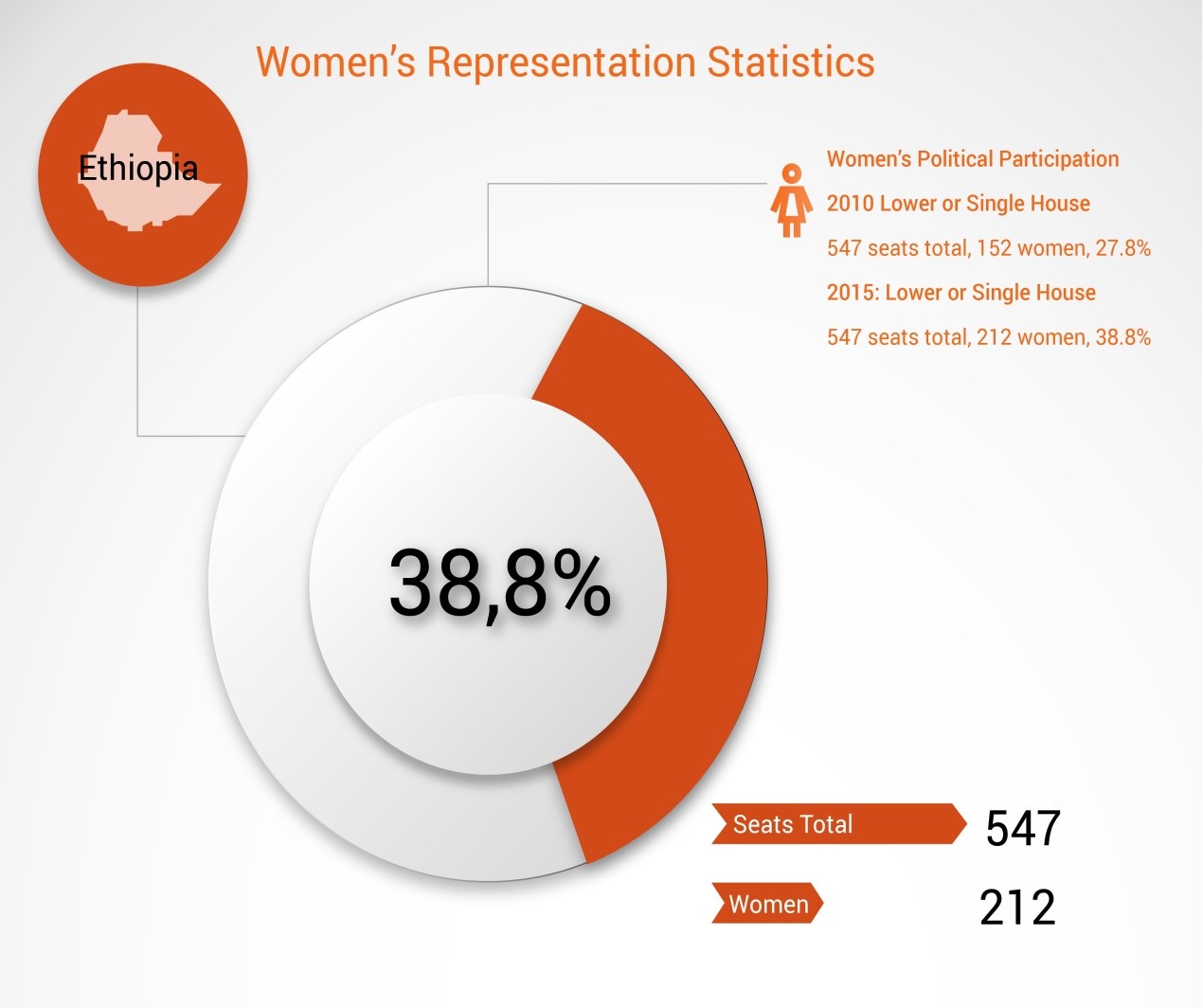2015 Elections Monitoring
Parliamentary elections were held in Ethiopia on 24 May 2015.
Prime-minister Hailemariam Desalegn and the ruling Ethiopian People’s Revolutionary Democratic Front (EPRDF) won 500 of the 547 seats. However, the opposition stated that the government had used authoritarian tactics in order to guarantee victory such as intimidation and refusal to register candidates. Ethiopian general elections are elections to the House of Peoples’ Representatives or State Councils and are conducted every 5 years. The House of Peoples’ Representatives were elected in single-member constituencies using the first-past-the-post system where voters are required to indicate on the ballot the candidate of their choice and the candidate who receives more votes than any other candidate, wins.
Women’s political participation
In Ethiopia, women constitute about 49.5% of the population but despite of these statistics, women political participation has been minimal as usually they are not considered as capable of decision making. Over the past decade, female political participation has been rising but a gap remains between male and female participation rates. In 2010 general elections, the number of women was only 27.8% of the total representatives. After the general elections of 2015, the number of women who are represented in Parliament is 38.8%. It is argued that the progress regarding the political participation of women is relatively slow in Ethiopia in particular and in Sub Saharan Africa at large due to the lack of commitment for increased women representation and the absence of sufficient political knowledge about women representation.
Ethiopia’s constitution and national policies are consistent with international legal instruments on gender equality, including the Convention on the Elimination of All Forms of Discrimination against Women (CEDAW), the Beijing Platform of Action, the African Charter on Human and People’s Rights and the Convention on the Rights of the Child. Article 35 of the Constitution guarantees the rights of women as equal to those of men. However, more than half of women experienced domestic violence by their husband or intimate partner at their home. According to population surveys, 68.4% of Ethiopian women think that wife-beating can be justified and many women are unaware of laws against gender-based violence. In addition, female genital mutilation (FGM) is widely practiced as 23% of young girls in the country undergo this practice.
Concluding remarks
Female political participation in Ethiopia is rising and the Constitution guarantees equal rights to women but discrimination against women persists. A key solution to the problem would be to expand political knowledge on the actual representation of women and raise awareness about women representation in the society in order to shape the political behavior of the public and change the attitude towards women representatives.

